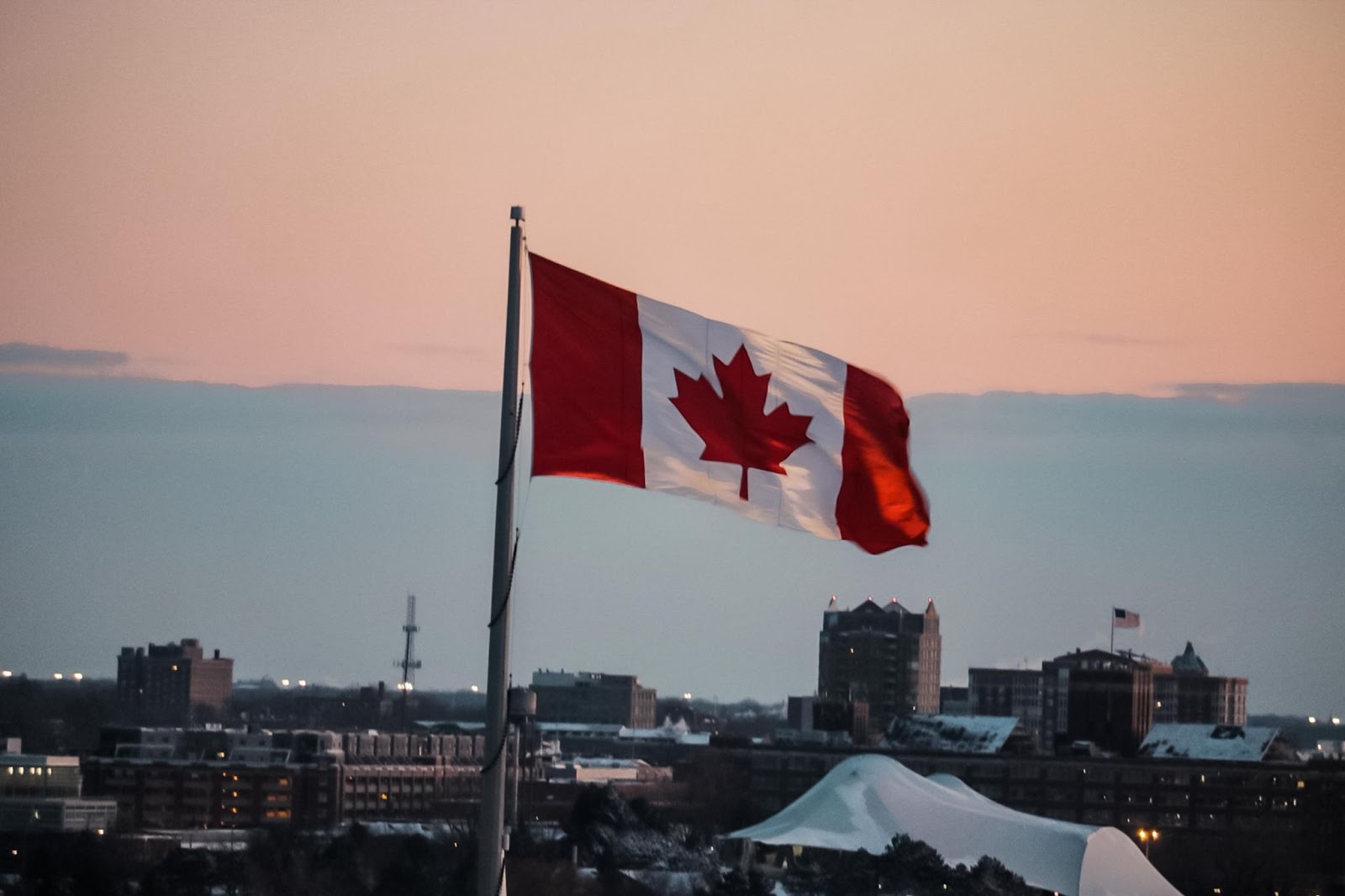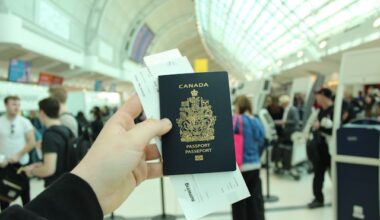Whether you are a student eager to further your education or a worker hoping to give your family a better life by relocating, Canada offers countless opportunities — but it’s important to understand the key steps and tips that will make your journey smoother. In this guide, I’ll walk you through the essentials you need to know before packing your bags.
🌍How ready are you?
COVID-19 Requirements
Good news! As of October 1st, 2022, the Government of Canada has lifted most of its COVID-19 restrictions. This means:
✅ You no longer need to show proof of COVID-19 vaccination.
✅ You are not required to provide a pre-entry COVID test.
✅ There’s no need to quarantine upon arrival, regardless of vaccination status.
This has made travel much easier and less stressful, saving you time and money.
Find the Right Sponsorship Program
Canada has several pathways that offer sponsorship opportunities, depending on your profile:
-
For students: Look for schools and universities that offer scholarships or bursaries that cover tuition and living costs. Some provinces, like Ontario and British Columbia, are known for generous funding programs.
-
For workers: Explore the Provincial Nominee Programs (PNPs), employer-specific work permits, or the Atlantic Immigration Program, where employers actively sponsor foreign workers. Websites like Job Bank Canada and official government portals are good places to search.
Prepare Your Documents
Even though COVID-19 paperwork is no longer needed, other documents are still crucial:
-
A valid passport
-
Acceptance letter (for students) or job offer letter (for workers)
-
Proof of funds (to show you can support yourself initially)
-
Police clearance and medical exam reports
Make sure you organize these well ahead of time to avoid delays.
Understand Canadian Culture
Adjusting to a new country isn’t just about paperwork. Take time to understand Canadian culture:
-
Be ready for a diverse and multicultural environment.
-
Learn about the weather—Canada is cold in winter! Pack appropriate clothing.
-
Familiarize yourself with Canadian etiquette: politeness, punctuality, and respect for personal space go a long way.
5️⃣ Plan for Accommodation and Settling In
Research affordable housing options near your school or workplace. Many sponsored programs or employers help with initial accommodation, but it’s smart to arrange temporary housing before arrival. Also, set up a Canadian bank account and phone line soon after landing.
Must-Have Documents As A Student
When travelling to any country, you need to be sure and doubly sure your documents are intact and I have curated a checklist of important documents you must have before you can apply for your study visa or permit;
- International passport
- Study permit. You should note that a study permit is not the same as a study visa.
- Visitor’s visa
- Be enrolled in a Designated Learning Institution.
- Letter of acceptance from institution.
- Letter of explanation which is submitted to the visa officer explaining why you want to study in Canada and showing your knowledge of your responsibilities as a student.
- Evidence of capacity to pay your school fees; this is dependent on your school of choice.
- Evidence of capacity to pay for living expenses.
- No criminal record.
- Medical examination to prove you are healthy.
When you have gotten all this ready, you are well on your way to Canada and can start the application process.
General Requirements For Professionals
If you’re a professional, skilled worker, businessperson, or artisan planning to relocate to Canada, there are several important requirements you must prepare ahead of your application. These requirements help ensure that you meet Canadian immigration standards and are ready for life and work in the country.
Here’s a checklist of what you need:
✅ Valid International Passport
Your passport must be valid for the entire duration of your stay in Canada. Check the expiry date and renew it if necessary before applying.
✅ Work Visa
You will need to apply for the appropriate work visa that allows you to live and work in Canada legally. This may depend on whether you have a job offer, are moving under a sponsorship, or are entering as part of a specific program.
✅ Passport Photograph
Recent passport-sized photographs that meet Canadian visa photo requirements are necessary for your application.
✅ Medical Examination
You must undergo a medical exam to prove you are in good health and free from conditions that could pose a public health risk or make you inadmissible to Canada.
✅ Educational Qualifications and Certificates
Include your diplomas, degrees, trade certificates, and any professional licenses or credentials. You may need to get these assessed through an Educational Credential Assessment (ECA) to verify their Canadian equivalency.
✅ Proof of Financial Capacity
You must show that you have enough funds to support yourself — and your family, if applicable — for the duration of your stay in Canada. This can include bank statements, pay slips, tax returns, or financial support letters.
✅ No Criminal Record
A police clearance certificate is typically required to prove that you have no criminal history and are eligible to enter Canada.
🇨🇦 Types of Work Permits in Canada
Canada offers two main types of work permits, depending on the nature of your job or offer:
1️⃣ Open Work Permit
An open work permit allows you to work for any employer in Canada, giving you flexibility and mobility in the job market.
Key features:
-
No specific job offer required before applying (in some cases)
-
Freedom to switch employers or locations
-
May have conditions on types of jobs or locations, depending on your situation
Open work permits are commonly issued to:
-
Spouses of international students or skilled workers
-
Recent graduates of Canadian institutions (under the Post-Graduation Work Permit)
-
Refugees or vulnerable workers
2️⃣ Employer-Specific Work Permit
An employer-specific work permit allows you to work only for the employer listed on your permit.
Key features:
-
Tied to one employer and one job position
-
Includes details like employer name, job title, and location
-
Changing jobs usually requires applying for a new permit
This type of permit is often issued when a Canadian employer sponsors you under a job offer approved by a Labour Market Impact Assessment (LMIA).
⚙ Important Note:
Not every job in Canada requires a work permit. Some categories, like business visitors, performing artists, athletes, or short-term researchers, may be exempt — but you should always check official Canadian government resources to confirm if your job falls under this exception.
Proof Of Funds
One of the most important — and often strictest — requirements when applying to travel, study, or immigrate to Canada is providing proof of funds.
The Canadian authorities take this requirement very seriously because they want to ensure that anyone entering the country has enough money to cover their living expenses without needing public assistance.
Here’s what you need to know:
✅ Amount Depends on Your Route:
The specific amount you need to show depends on the type of visa or permit you’re applying for. For example:
-
Students must show they can cover tuition fees plus living expenses for themselves and any accompanying family members.
-
Skilled workers applying under certain immigration programs must meet minimum settlement fund thresholds.
-
Dependents must be supported by the main applicant’s proof of funds.
✅ Money Must Be Available in Your Account:
The funds must be available in your name or your sponsor’s name (if applicable) and must be:
-
Readily accessible (in cash or liquid assets, not tied up in investments or real estate)
-
Held in an account you control (personal bank account, savings, fixed deposit)
-
Maintained for at least 4–6 months prior to your application date, depending on the program
✅ Borrowed Funds Are Not Accepted:
You cannot borrow money just to meet the proof of funds requirement. Any funds you show must truly belong to you or your sponsor and be supported by official bank statements, account summaries, or other legal financial documents.
✅ Accepted Forms of Proof:
-
Official bank statements (preferably stamped and signed by the bank)
-
Bank balance certificates
-
Fixed deposit statements
-
Proof of investments (if accepted under the specific program)
-
Scholarship or funding letters (for students)
⚠ Important Tip
Submit clear, genuine financial documentation. Submitting fake or misleading documents can result in your application being rejected and can even affect future visa attempts.
Some general guidelines for students with or without dependents can be found here.
Frequently Asked Question on Canada Travel
If you’re planning to study, work, or join a family member in Canada, it’s natural to have lots of questions. Here’s a guide to some of the most common questions travelers ask about going to Canada, with clear answers to help you plan your journey smoothly.
1️⃣ Can I go to Canada without admission as a student?
No, you cannot travel to Canada as a student without first receiving a letter of acceptance from an accredited Canadian institution. This letter is a mandatory requirement when applying for your study permit and student visa. Make sure you apply and secure admission before starting your visa process.
2️⃣ How is a student visa different from a study permit?
Great question! Here’s the difference:
-
A student visa (technically called a temporary resident visa) allows you to enter Canada. It is your official permission to travel to the country.
-
A study permit gives you the legal authority to stay in Canada and pursue your studies. Even if you have a student visa, border officials can still deny you entry if they find issues with your documents or purpose.
Think of it this way: the student visa lets you board the plane, and the study permit allows you to remain in Canada once you arrive.
3️⃣ I want to travel as a dependent. What do I need to know?
To travel as a dependent, you must have a family member (such as a spouse, parent, or legal guardian) who is already in Canada as a student or worker. They will need to:
-
Show proof of their legal status in Canada (study or work permit)
-
Provide proof of funds to demonstrate they can financially support you during your stay
Keep in mind that not all programs allow dependents automatically. Check the conditions of the main applicant’s visa or permit.
4️⃣ How long will it take for me to receive a visa?
The visa processing timeline varies depending on your country, the time of year, and how complete your application is. Generally, you can expect the process to take a few weeks to several months after completing your biometrics capture (fingerprints and photo). To avoid delays, submit all requested documents and respond promptly to any additional requests from the visa office.
5️⃣ Do I need to pay any fees to get my visa?
Yes. There are application fees for most Canadian visa categories, including student visas, work permits, and visitor visas. These fees must be paid when you submit your application, either online or at the visa application center (VAC) in your country. Make sure you pay only through official channels to avoid scams or delays.
✈ Bonus Tips for Travelers
✅ Always double-check the latest immigration requirements on the official Government of Canada website before applying.
✅ Prepare supporting documents such as proof of funds, police clearance, and medical exams early.
✅ If you’re applying for sponsorship, ensure your sponsor meets the financial and legal requirements.
Ready To Go!
With all your documents in place, required funds in your account, you are well prepared to start your journey.
Found this guide full of useful information, don’t forget to share.






